|
By Barbara Kelley, OP Communications Department, Adrian Dominican Sisters A diverse group of about 42 Catholic Sisters, graduate students, and long-time activists – predominantly from the United States but also from Latin America and other parts of the world – spent the first half of Advent exploring the history, current events, people, and community organizations of El Salvador and Honduras. The delegation took place November 29-December 12, 2022. They were participating in two separate delegations. Roses in December, the experience in El Salvador, was co-sponsored by the SHARE Foundation and the Leadership Conference of Women Religious (LCWR), an organization of the elected leadership of the majority of congregations of U.S. Catholic Sisters. Roses in December marked the 42nd anniversary of the killing of four U.S. Catholic missionaries who had come to El Salvador to serve the people. This was followed immediately by the Vamos a La Milpa delegation to Honduras. Some participants learned about the programs of the Sisters of Mercy and the School Sisters of Notre Dame for the people in the urban area of San Pedro Sula, while others traveled seven hours to the rural area of Bajo Aguan to meet people who were defending their waters and their land rights. While Roses in December activities formally began on November 30, many saw their arrival in El Salvador as memorable in itself. Many traveled to El Salvador for the first time, while for others, the journey on November 29 was a memorable reunion.
“It was hard enough to hear about these long-ago instances of martyrdom, but in a way even scarier to hear – both in the morning from Karen Ramirez of ProVida and in the afternoon from Father José Maria Tojeira, former Provincial of the Jesuits who were killed – that the situation in El Salvador is going backwards,” Sister Barbara Kelley, OP, wrote. “Again, anybody who opposes the government of El Salvador is treated as an enemy of the state and subject to persecution, detention, and torture.” Ana Karen Barragán Fernandez also reflected on the experience at the UCA museum. “To be in the UCA is to remember that the reconstruction of the social fabric takes time and is not guaranteed: it is an essential and urgent struggle that requires all of us with our historical, cultural, and political baggage,” she wrote. “Therefore, the Jesuit University of El Salvador is a bastion in the transformation of such a polarized and changing world: It is fertile ground.” The delegation began their commemoration of the four Church women – Ursuline Sister Dorothy Kazel, Maryknoll Sisters Ita Ford and Maura Clarke, and lay missioner Jean Donovan. Stuck in traffic for three hours, the delegation missed a planned meeting with one of the local communities in Chalatenango, the area in which the four women ministered to and accompanied the local people.
Even before Mass on December 2, commemorating the 42nd anniversary of the deaths of the Church women, the delegation sensed a strong communion with the martyrs. The bus took the same route as 42 years ago when two of them went to the airport to pick up the other two returning from a Maryknoll meeting; after leaving the airport, the women were abducted. The delegation rode in silence. Mary Anne Perrone, one of the SHARE Foundation organizers of the delegation, reflected on the differences in the rides along that route 42 years ago and in 2022. “Then, they were driving from the airport, in the dark, on their long ride home, the four of them. Today, we, a busload, started out on the road toward the airport, on a clear, sunny day, in memory of them. Then, abducted and in fear and terror, their captors made the turn onto an isolated country road that took them all the way to a clearing near the town of Santiago de Nonualco. Today, we made the same turn, holding red roses, quieting our voices and maintaining silence for the 20 minutes and 22 seconds it took us to arrive at the same site. Then, their bodies were cruelly violated and they were shot at close range, killing them and spilling their blood on the soil of the pueblo of El Salvador. Today, we processed to that site, where they were hastily buried in a shallow grave, and where the seeds of their sacrifice have sprouted into joy and hope and a liberating message in all of the communities they touched in El Salvador and around the world.” About a mile from the location of the commemorative Mass – in a chapel built on the site where the women’s bodies were discovered in a shallow grave – the delegates were met by members of the local community, who were joyfully waiting for the delegates to accompany them in processing to the chapel. “We joined a procession of local people who venerated the four women,” Sister Sharon White, SSJ, recalled. “Despite the heaviness of the deaths, hope and resurrection were in the air because of the joy of the people. The crowd did not allow the sorrow to dampen their spirits. They are a hopeful people holding on to the witness of the four martyrs we celebrated today. They call us to solidarity, to be companions with a country seeking peace, justice, freedom, and basic needs.” After the Mass, delegates and community members gathered outside the chapel and around the site where the women had been initially buried. Many admired the “witness,” an ancient tree that had been spattered with the blood of the women. Others brought the roses they had been carrying to the building that marked the site of the shallow grave. Many members of the delegation recalled commemorating the deaths of the women in years past, in their own local community. Marc Alvarado, volunteer staff member of the InterReligious Task Force on Central America and Colombia (IRTF) of Cleveland, recalled experiences with the family members and friends of Sister Dorothy Kazel and lay missionary Jean Donovan. The spoke “with joy and yearning of their friends long past, in all their beautiful and imperfect humanity.” Marc spoke of the hope he feels and of the sense of purpose illustrated by a bee who landed on the rose he was carrying. “It proceeded to do what bees do, working to perpetuate life.” In the same way, Marc wrote, we must carry on the legacy of solidarity left by the four women. “We are called to be and move and work and love in solidarity with each other. To perpetuate life in the midst of death. To create movements for liberation…that are so leader-full that our leaders can no longer be martyred, that we no longer need to die in order to live.” The sense of solidarity was shared that evening in a Zoom call organized in collaboration with the Leadership Conference of Women Religious and the Sisters of Charity of Halifax in which the delegation’s friends, family and community members, and others joined a virtual pilgrimage, with up to nearly 700 people following the delegation’s posts from each day of the experience in El Salvador. After an intense day, some members of the delegation chose to begin the last full day of the El Salvador experience early – with 6:15 a.m. Mass celebrated by Cardinal Rosa Chavez. After Mass, the cardinal met with the delegation over cookies and coffee, reviewing his newly published book about his own experiences in El Salvador – including his friendship with Archbishop Oscar Romero. Each of the visitors from the delegation received a signed copy of his book so that they could remember the occasion and the experiences of the people of El Salvador. The entire delegation joined local community members and professionals at the International Forum on Human Rights, hosted by Tutela Legal Maria Julia Hernandez. Speakers offered analyses of past and current human rights crises in El Salvador and the prospects for truth, justice, and reparations for the victims. Among the speakers were people who shared personal testimony of how they had been affected by the continuing repression in their country: stories of detention and torture and of waiting helplessly to hear of their loved ones in detention, being swept up in the government’s state of exception in which many constitutional rights have been suspended.
But as sober as the events of the last few days were, the delegation spent the rest of their last day in El Salvador in celebration. The group gathered at the office of a local SHARE Foundation community organization partner which works with women suffering from cancer. The afternoon was a celebration of the commitment of the women who serve other women and of the long-time dedication of one of the SHARE El Salvador staff members. In turn, José Artiga, Director of the SHARE Foundation and Coordinator of the Roses in December delegation, was recognized for his decades of dedication to the people of El Salvador and Honduras.
Once the delegation returned to their hotel, they split. One group went out to eat at a distant resort area, where they had the opportunity to shop for souvenirs, while another group enjoyed dinner at a local restaurant – and still other simply stayed at the hotel. The delegation then took the rest of the evening preparing for the next day: either their drive to the border of Honduras or their trip back to the United States. Perhaps Sister Maria Orlandini, OSF, best expressed the feelings of the delegation as they prepared to leave El Salvador. “I want to tip my hat to this beautiful, welcoming, and courageous people, especially the strong women we met – a strength born of struggle and not giving up,” she wrote. “I feel blessed and grateful to have had the possibility to walk on this land blessed by the blood of so many martyrs. What a privilege to be able to witness the love the people have for the sisters who lived in their midst and who loved them. This love is so strong even after 42 years.” |
SHARE EL SALVADORSHARE STRENGTHENS SOLIDARITY WITH AND AMONG THE SALVADORAN PEOPLE IN EL SALVADOR AND THE UNITED STATES IN THE STRUGGLE FOR ECONOMIC SUSTAINABILITY, JUSTICE, AND HUMAN AND CIVIL RIGHTS. Archives
June 2024
Categories |
SHARE El Salvador
|
|

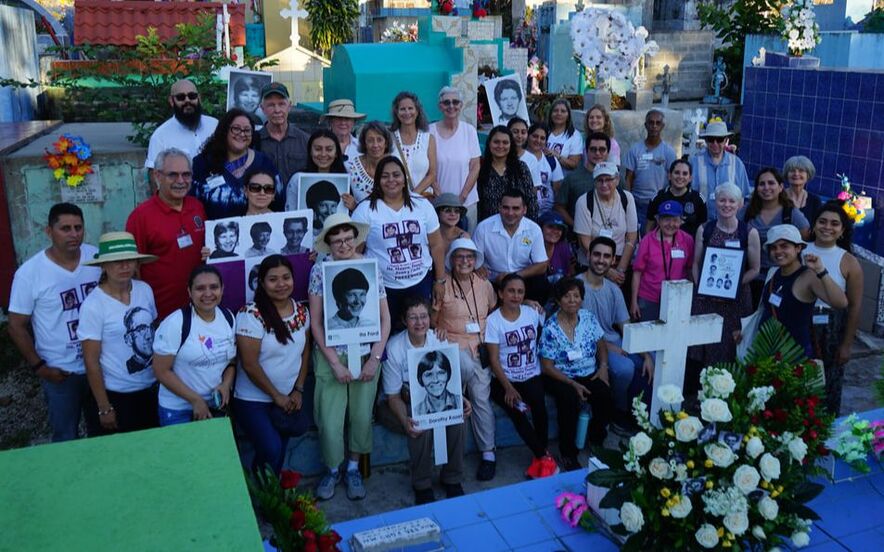
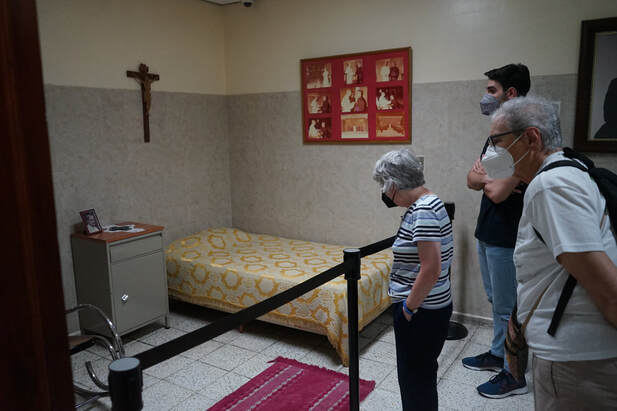
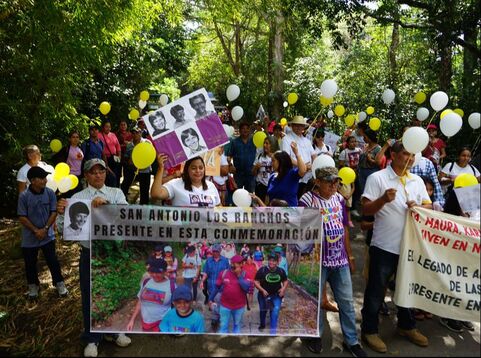
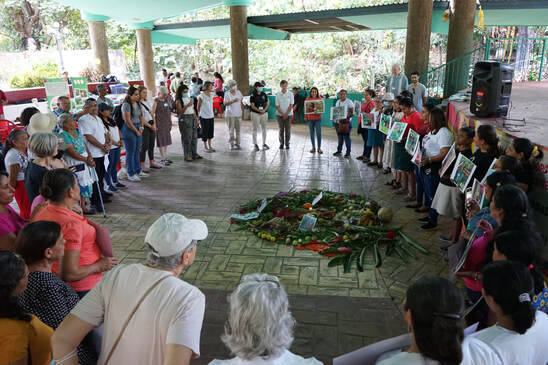
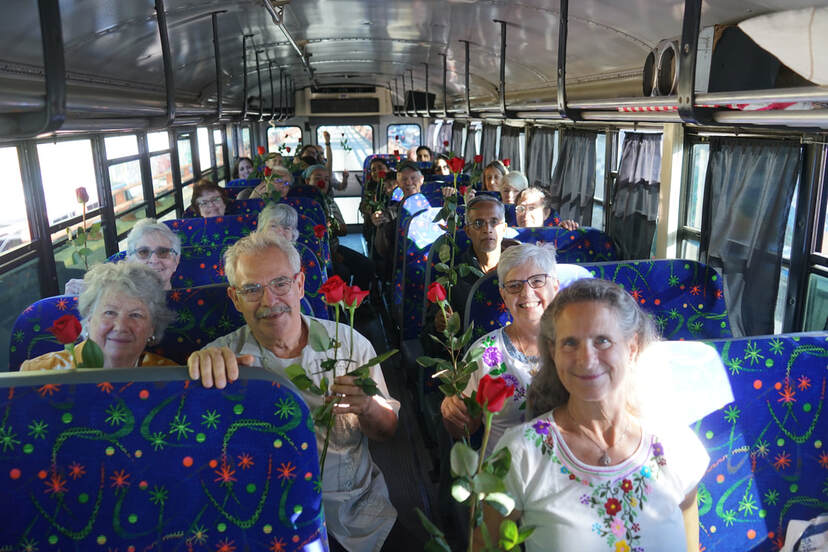
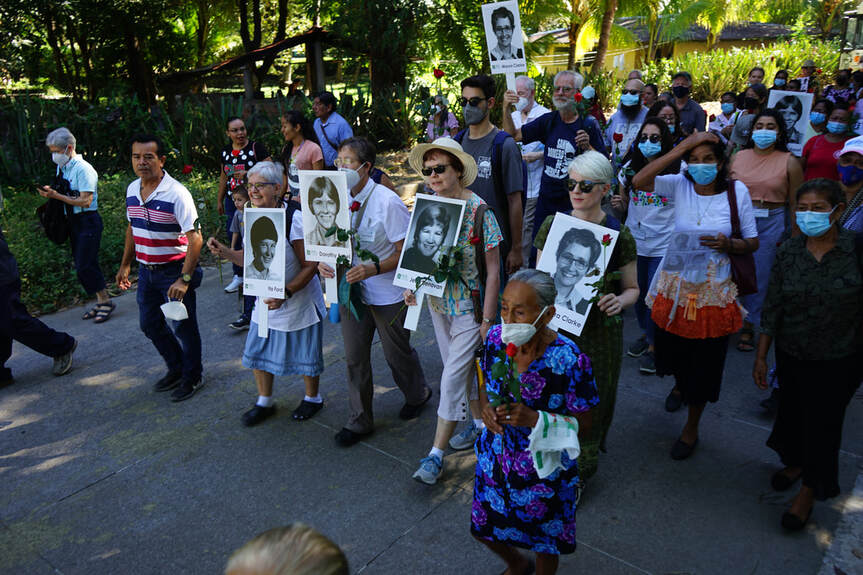
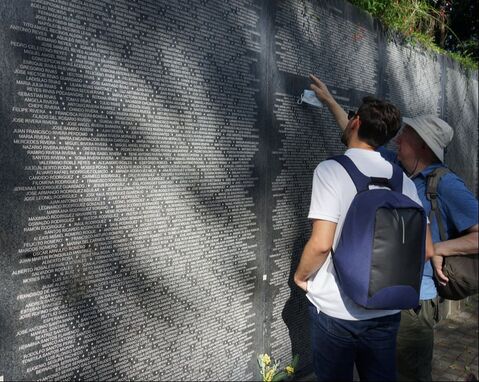
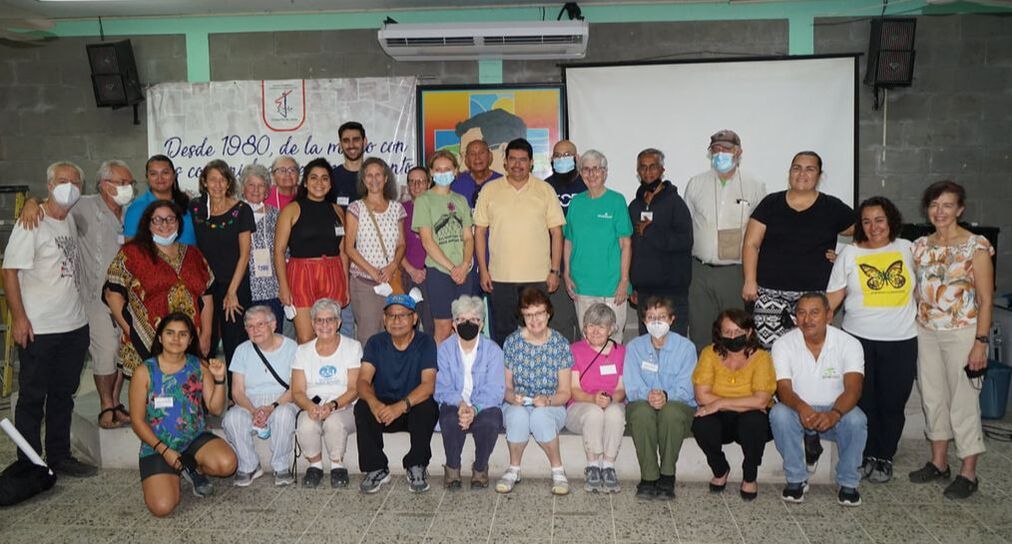
 RSS Feed
RSS Feed